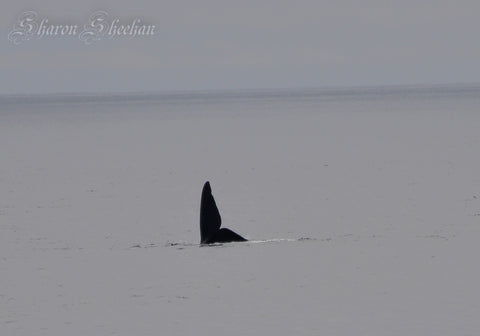Marine Mammal Observer (MMO)
What is a marine mammal observer?
As a marine mammal observer, my role is to monitor for marine mammals, basking shark, and sea turtles during geophysical surveys that produce acoustic disturbance to the marine environment. If you're wondering why this is important, it's because my work helps to reduce the propagation of noise throughout the marine environment and minimize the risk of injury to marine mammals.
The guidelines and laws for reducing noise pollution vary by country and location, so it's my duty as an experienced MMO to be familiar with the relevant guidelines for the specific survey location. Additionally, environmental impact assessments are carried out by an environmental team before any survey begins, and special consent/license conditions that the MMO advises on must also be considered. These EIA's are essential in considering any specially protected species or sensitive habitats.
An experienced MMO will become very familiar with the various survey equipment which produce potentially harmful levels of noise including seismic airguns, sparkers, sub bottom profilers, side scan and multibeam.
What kind of projects require Marine Mammal Observers?
We mitigate for offshore geophysical surveys, impact piling and explosive works that produce acoustic disturbance to cetaceans, seals, sea turtles and sometimes other sensitive species. Most of the geophysical surveys are required for oil and gas exploration, windfarms, subsea cable laying, harbour works and locating previously laid pipeline and cables.
These surveys are required by industries such as oil and gas marine exploration, offshore renewables and harbours.

Why would a survey company follow the MMO’s advice?
Compliance with the laws and guidelines of that country is essential, and the reports on the compliance of the survey are submitted to regulatory or government bodies and the client of the project. MMO mitigation reports are used to assess if permits will be granted for future surveys that the client would like to undertake. The client companies may or may not decide to use this survey company again in the future, and the government may or may not provide permits and licenses for future surveys. So it's essential to my work, not only for the benefit of our sensitive marine life but also to ensure future licenses and clients.
Other uses of the Marine Mammal Observer reports and collected data
The data collected from MMO reports can also be used to adjust future laws and mitigation guidelines, reporting methods, as well as providing environmental and ecological data to government bodies.
How do surveys disturb whales and dolphins?
The most important sense for marine mammals is hearing. This can be affected either temporarily or permanently. It also like sight for them as they use sound to distinguish the shape of objects in the marine environment. The sound they emit is in the form of clicks and it is bounced back as an echo after it hits the bottom of the seafloor, fish or other objects and features in the ocean.

Temporarily this will affect them finding food, orientation and communication. They may avoid certain area’s where food is located or they would normally congregate to socialize and find a mate.
Permanent loss of hearing or inner ear injury could lead to death from starvation if they are unable to use their hearing when hunting or for orientation. They can be found beached when disorientated and also beached in a low body fat condition if they have not been able to feed.
If you depend on your hearing to see, I imagine it must be frightening for these animals at night or at depth where it is darker. It becomes too easy to lose your pod and end up alone unable to hunt for food and survive.
Why is hearing important to marine mammals?
They need this to locate prey at depth, in the dark or bad visibility or sometimes even under sediment. If hearing is damaged it greatly reduces their chance of finding food.
They also need it to communicate. This is really important to work together when they hunt for food as they sometimes work in pods, they have strong connections to their pods and they also need communication to find partners for mating or stay near their young and pods.
What happens if they can’t communicate?
There will be reductions in population sizes if cetaceans have damaged hearing and can’t hunt or communicate effectively. This can have a major knock on effect on the marine ecosystem.
How do implementing mitigation practices help marine mammals?
When the client and surveyors implement the guidelines or laws to protect marine mammals then this allows the survey to be completed while not filling the local environment with constant noise. Noise from surveys only occur as necessary and there are breaks which allows wildlife to return for hunting and mating purposes. The surveys are also done in a way which the noise is gradual to give warnings to wildlife as they come close to the area so that there is no shock or instant damaging effects from loud noise.
Where are marine mammals protected?
Thankfully, guidelines for best practice to protect marine mammals are becoming more common. In countries like Ireland, the UK, USA, Canada, Australia, and New Zealand, guidelines for reducing noise pollution are already in place. Other countries are catching up, and client companies are starting to use MMOs even in countries without guidelines to follow best practice. This is highly commended, as many countries have sensitive species such as sea turtles, humpback whales, and beaked whales that require protection during offshore surveys. By taking steps to minimize acoustic disturbance to the marine environment, we can help protect these fascinating and delicate creatures.

